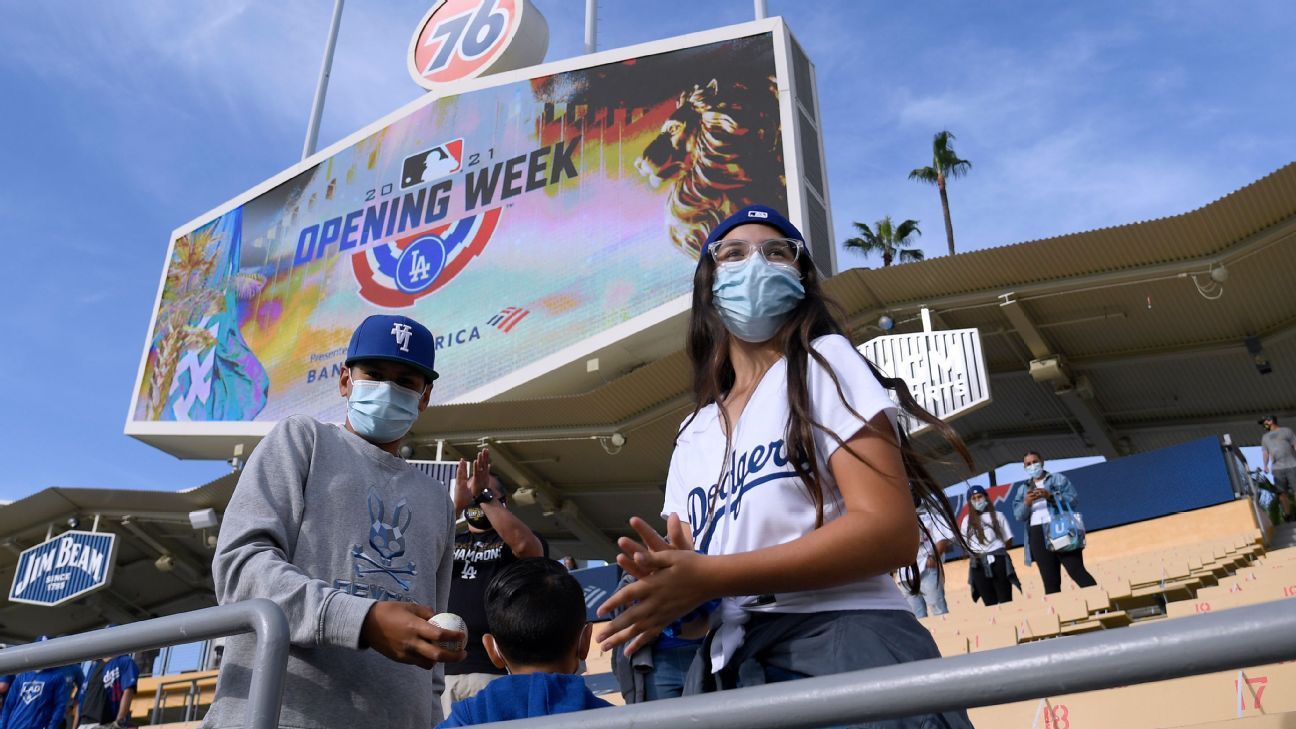
John Steverding fell in love with the Angels in the early 1980s, as a 10-year-old imitating Brian Downing’s open batting stance. He purchased season tickets for the first time in 1995 and renewed them every year, watching almost every home game in person until the coronavirus pandemic kept fans away from ballparks in 2020. Steverding, a 48-year-old living in Yorba Linda, California, returned to Angel Stadium for the first time in more than 18 months on Opening Day. He walked a meandering path to reach the entrance, was assigned a seat four rows away from his usual spot — Section 523, Row F, Seat 1 — and longed for a physical ticket. It all felt so different.
“But then you walk in,” Steverding said, “and you feel like you’re home again.”
Steverding greeted the same ushers he had been seeing for decades. He caught up with old friends who have become extended family members, heard the familiar voice of Michael Araujo introducing players and experienced all the sights, smells and sounds that harkened him back to a lost staple of his life. It made him realize how much he missed this — a feeling shared by fans throughout the country as they made their way back into baseball stadiums over these past couple of weeks.
They all returned to a new reality. Where tickets are digital and transactions are cashless. Where directional signage, hand-sanitizing stations and plexiglass dividers are prevalent. Where food is pre-wrapped, condiments are provided in single-use packets and menus are accessed through QR codes. Where face masks are required, social distancing is mandated, bags are discouraged and many of Major League Baseball’s long-held traditions — tailgates, autographs, mascots getting up close with fans — are missing.
